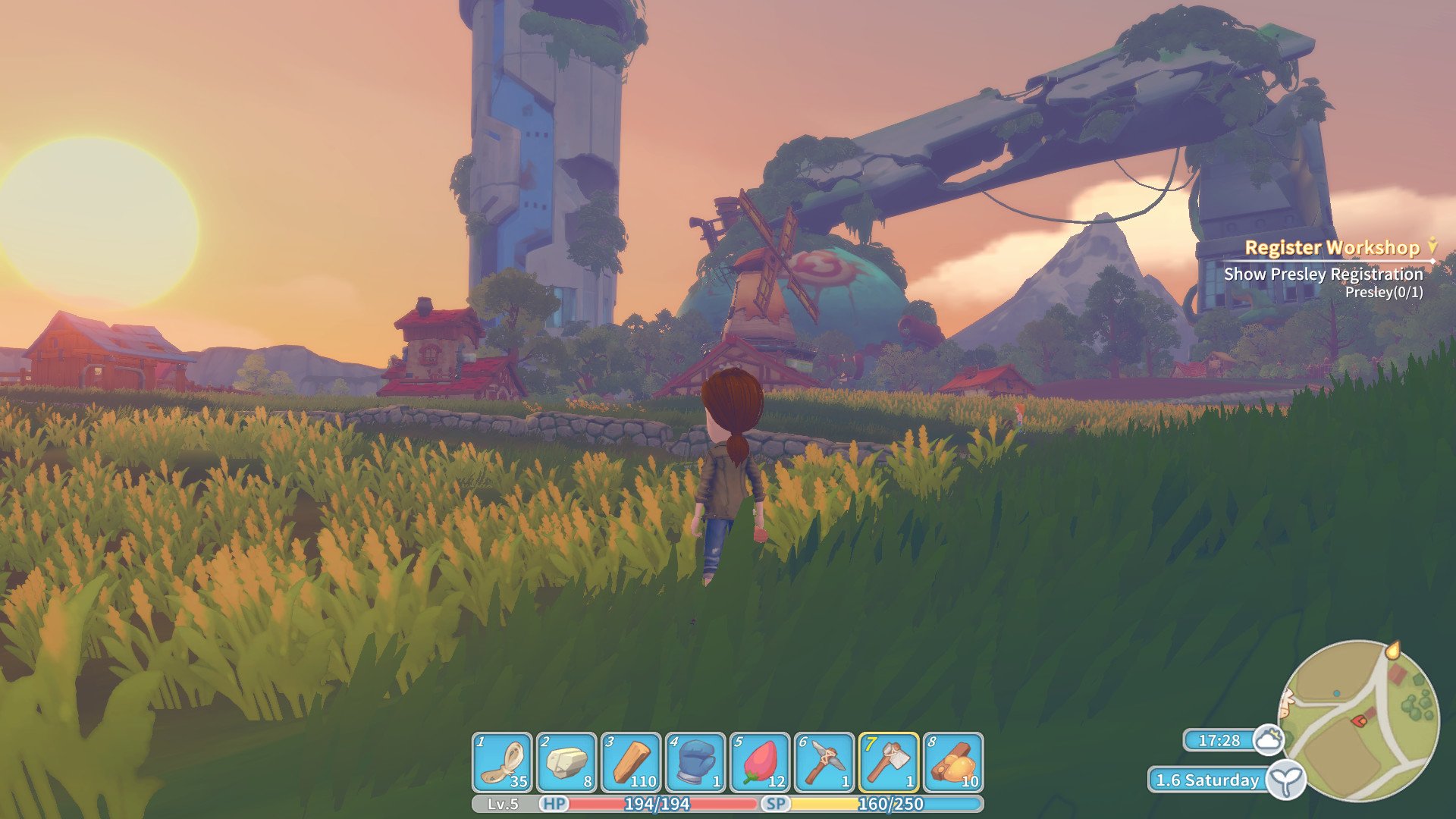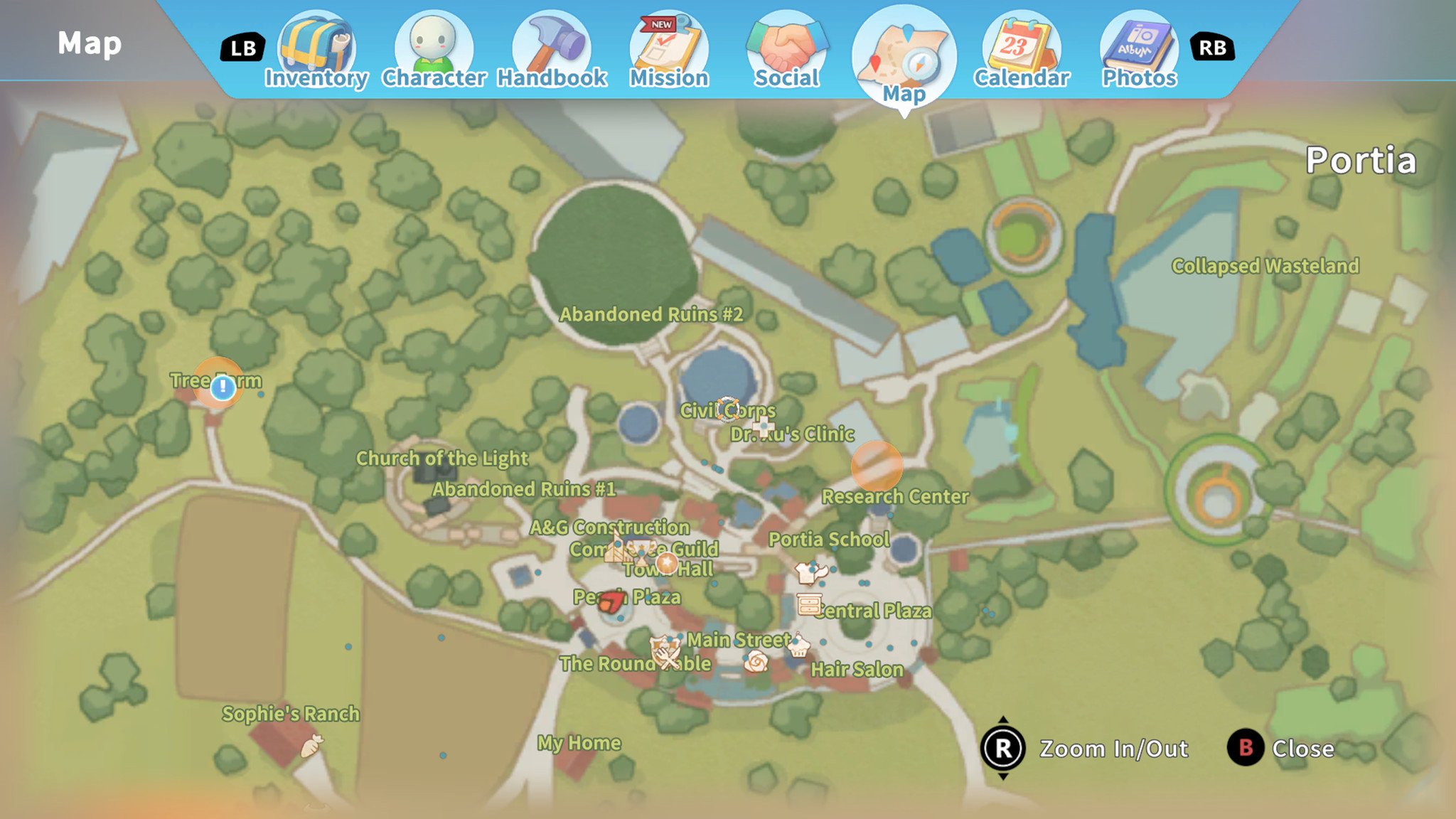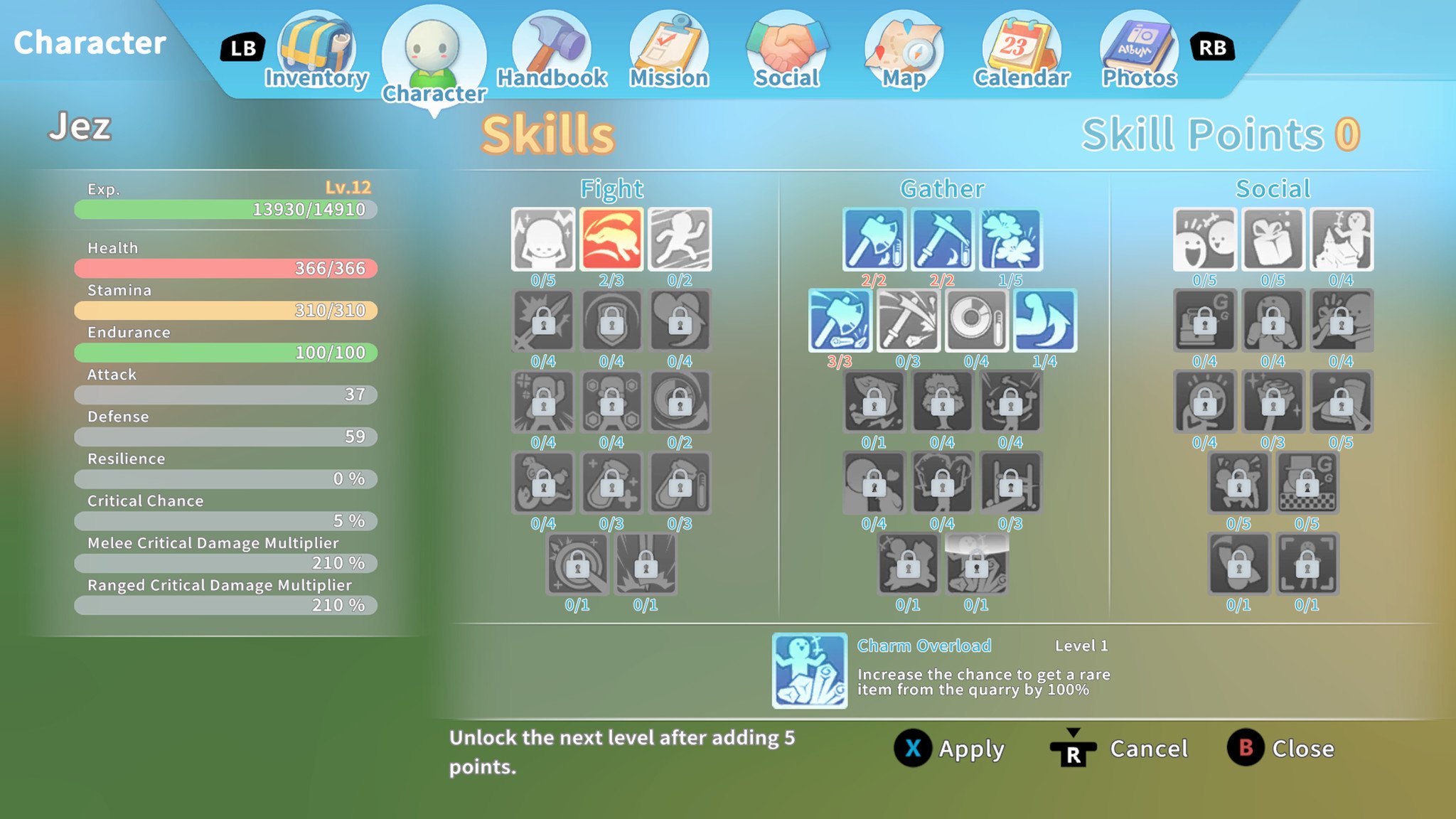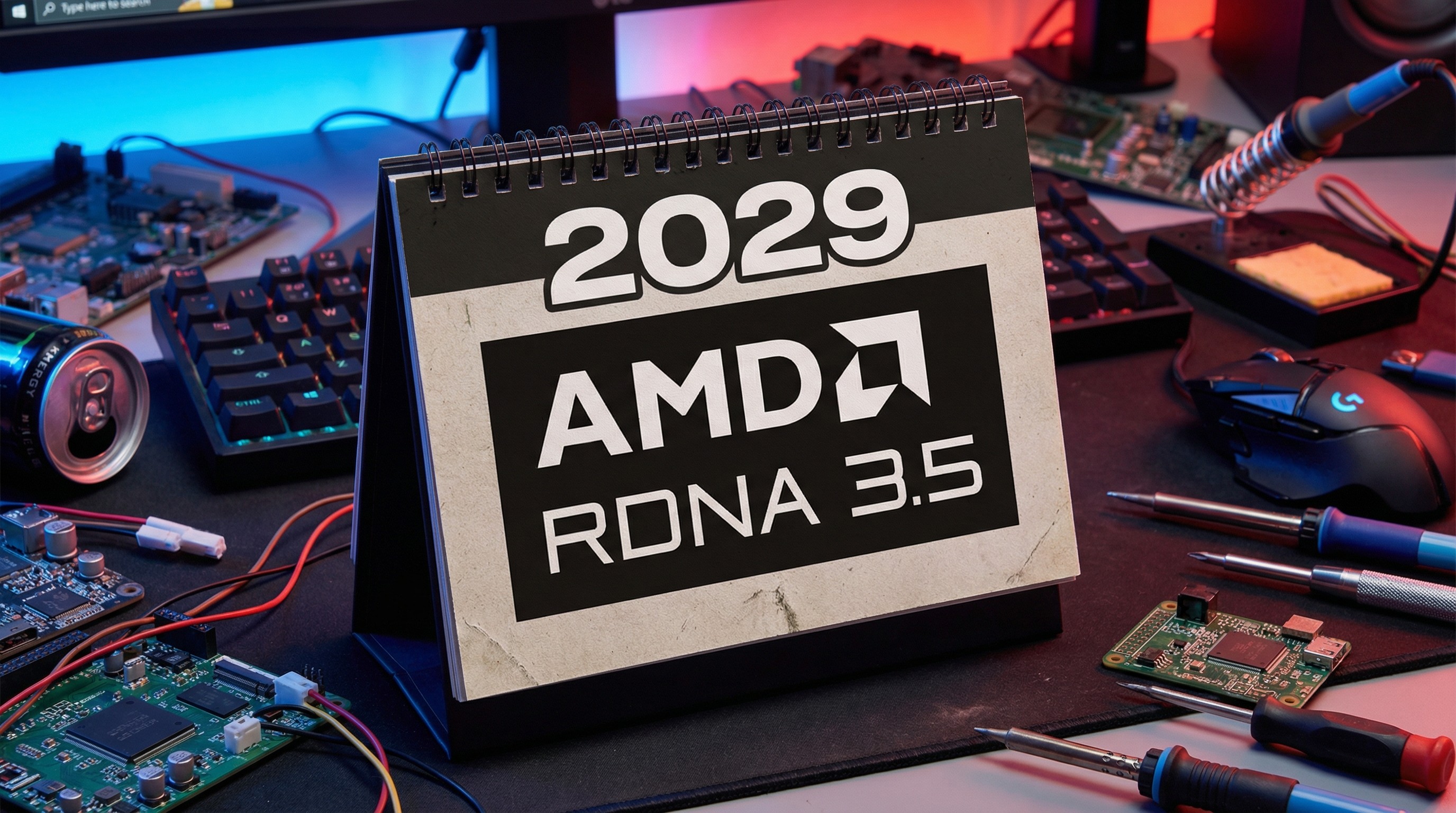My Time at Portia is a unique take on the life-sim genre, allowing you to build up a local business on the ruins of a high-tech civilization (probably our civilization). In a world where the use of high-tech gadgetry is frowned upon, you arrive in Portia with the deed to your father's rundown workshop and neglected lands. Similarly to other games in the genre, your task is to tidy the place up, rebuild and restore the workshop to its former glory, fulfilling commerce orders from the local township, farming and selling crops, and much more.
My Time at Portia is expected to launch on April 16, 2019, and for fans of games like Stardew Valley and Animal Crossing, it's well worth a look.
A chill life sim
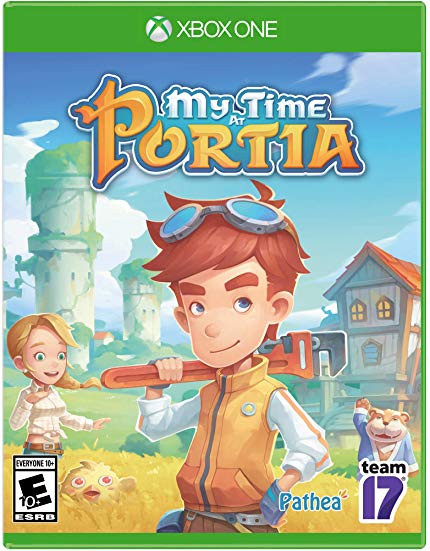
My Time at Portia
Bottom line: My Time at Portia is a relaxing game, once you get past the frustration of learning its systems.
Pros
- Attractive art
- Tons to do and see
- Addictive
Cons
- Systems are hard to unpack
- Clunky controls and menus
- Janky engine
What you'll love about My Time at Portia
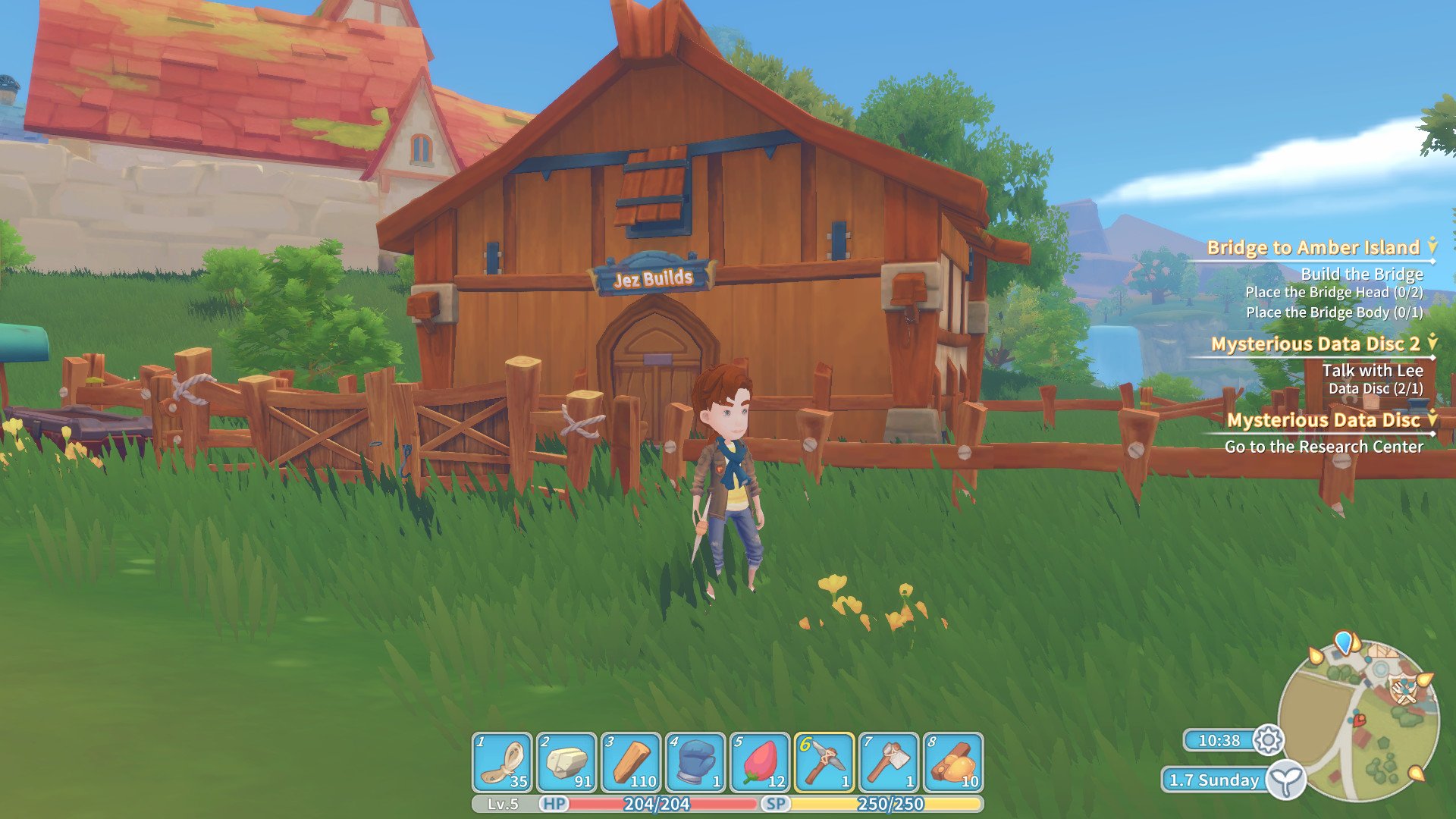
My Time at Portia has some attractive presentation, with vibrant colors, charming music, and a pleasant cartoon aesthetic. Set in the city of "Portia," the game is, perhaps somewhat ironically, post-apocalyptic, built atop the ruins of an ancient, high-tech civilization. The citizens of Portia live a simple life, albeit aided to some degree with the tech of the past, deciphering bits and pieces from fragments of technological relics buried in ancient tombs and dungeons. After creating your character and heading to the city, you receive the deed to your father's workshop, setting up a business to provide the local townsfolk with your services as a carpenter and designer.
| My Time at Portia |
|---|
| Publisher | Team 17 |
| Developer | Pathea Games |
| File size | 2.6 GB |
| Genre | RPG / Simulation |
| Age-rating | For ages 10 and up |
| Players | Single-player |
| Platforms | Xbox One, PlayStation 4, Nintendo Switch, PC |
| Price | $29.99 |
My Time at Portia's inviting aesthetic is betrayed somewhat by its depth and complexity, although that's not necessarily a bad thing. At the outset, you're bombarded with tons of options for things to do, achieve, and explore, including abandoned ruins that can be mined for ores, construction tables for filling orders from the local townspeople, and wide open areas full of quirky characters to talk to.
All the latest news, reviews, and guides for Windows and Xbox diehards.
My Time at Portia incorporates systems and features from many other games. You can fully build and customize your home, upgrading the size to accommodate more machinery and farming planters for harvesting and selling crops. The game also has an old school Warcraft-style talent tree, with three columns of skills to upgrade your character as you level up. You can specialize in gathering and crafting, social systems, or combat, and also gear up with new weapons and armor to improve your chances in the game's dungeons.
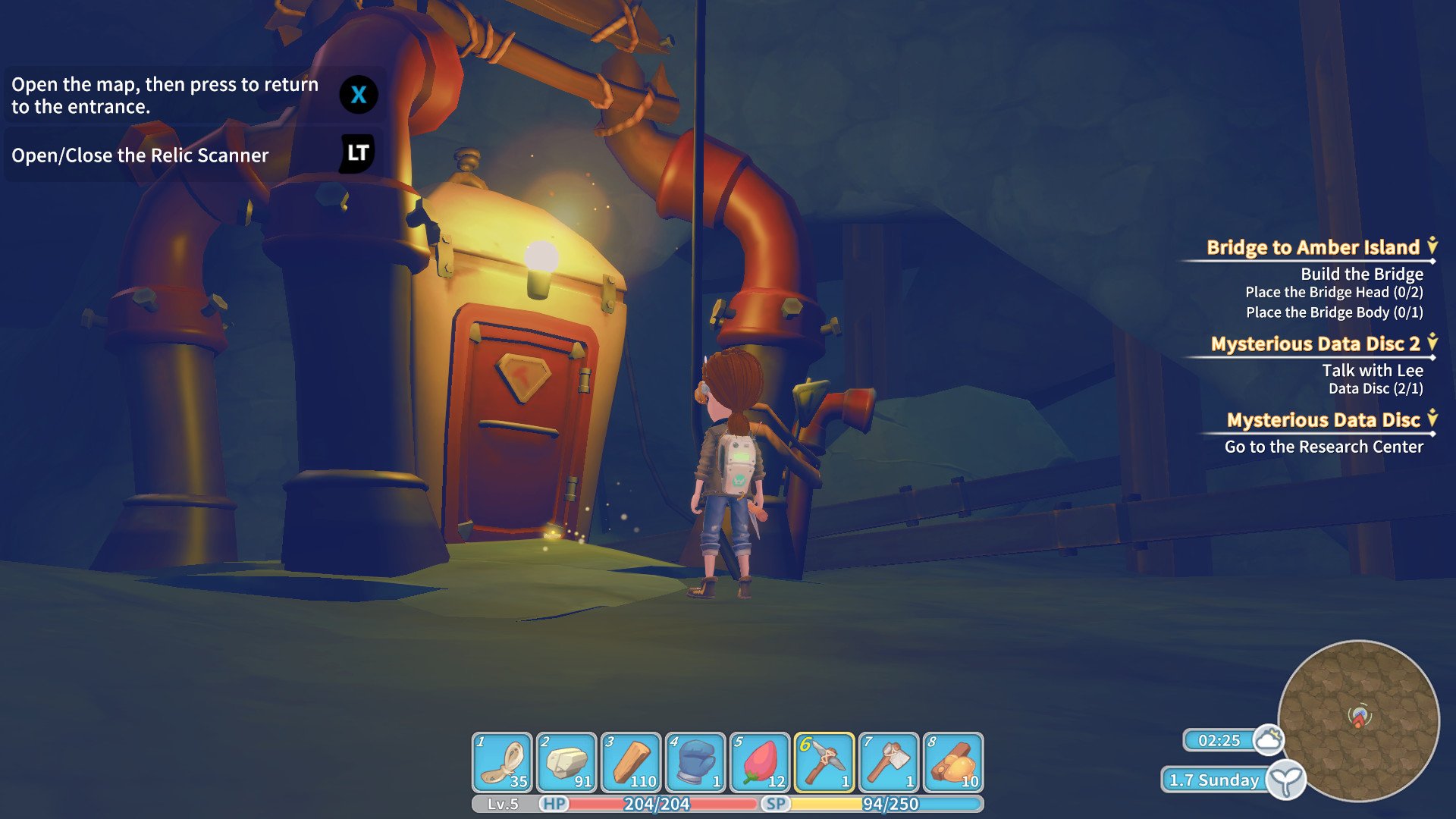
The game's sizable map is split into a desert area, a grassy plains area, and a marsh area, with a few other supporting locations for budding explorers. It's up to you how you want to progress through the game since most of the activities yield experience points (EXP). You can fish, hunt, and cook, as well as hunt monsters in the local area. Almost everything yields some form of crafting materials, from kicking trees to rummaging around in animal dung (seriously), and learning where to find all of these magical objects forms part of the game's challenge. To upgrade through the game, you'll have to earn enough money (or "Gols," in game), as well as the corresponding crafting materials throughout.
Upgrading and building your dream workshops and farms is fun and addictive, alongside the game's many side objectives, like building relationships with the local townsfolk, and furnishing and customizing your home, but the game has a few issues.
What you'll dislike about the My Time at Portia
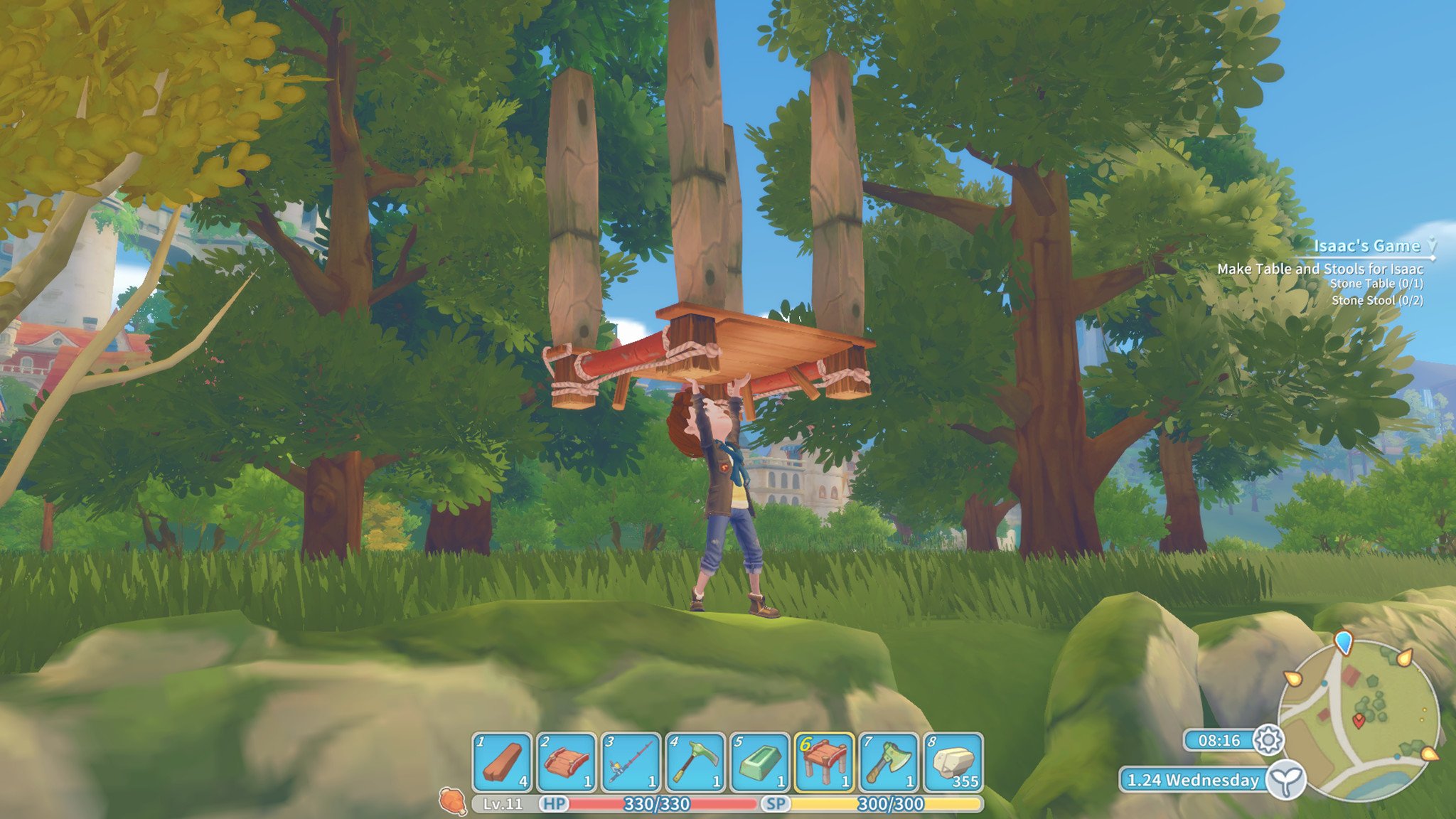
The game runs at around 30 frames per second (FPS) and is quite stable, across a relatively large open world area with many interior locations to explore. However, it's not the most polished game, lacking a 4K Xbox One X patch, with rough animations and collision mechanics. Targeting and attacking simply doesn't feel that great, so it's probably a good thing that the emphasis isn't on combat prowess. However, the game feels like it actively fights against you as you try to thumb through its menus, some of which oddly utilize d-pad directions for choosing items, rather than the standard "A" button. It seems as though the game was ported very rapidly from PC, without much thought given as to how it might handle with a controller.
Those familiar with these types of games probably aren't strangers to grinding, but Portia takes this to fatiguing extremes. The game will often give you quests for stuff you can't yet create, and the whereabouts of the reagents to create them are either hard to track down or are simply unavailable due to requiring upgraded facilities.
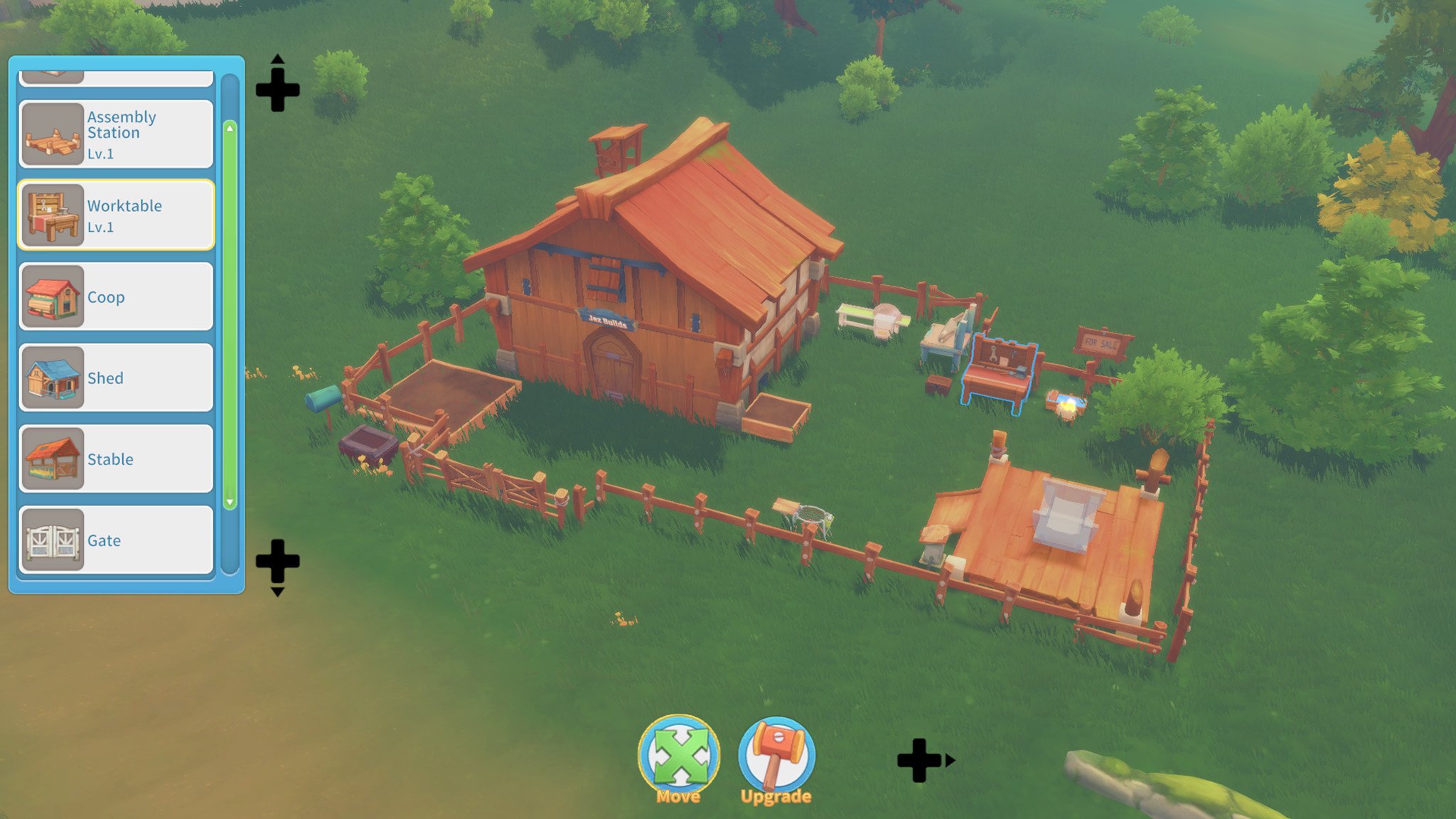
Which, by the way, also require exotic and elusive reagents, or have to be performed via buildings in the town rather than inside your house. The game allows you to upgrade and move around certain facilities in your base, but others have to be done so from a shop in town. It's frustrating having to run between areas to perform the same tasks, having to note down all the crafting materials you need. Many aspects of the game in this area could have been streamlined.
The complexity might give it a level of depth that some fans appreciate, but for others who just want to chill, Portia feels needlessly aggressive in its overlapping crafting complexities, which go far beyond many similar games in the genre. I am a fan of games with a heavy emphasis on crafting, but even I found My Time at Portia to be a bit of a slow grind.
None of these complaints are what I'd call deal-breakers, however. And if you're a fan of learning your way through complex crafting systems, My Time at Portia's complexity might even be appealing to you.
Should you buy My Time at Portia?
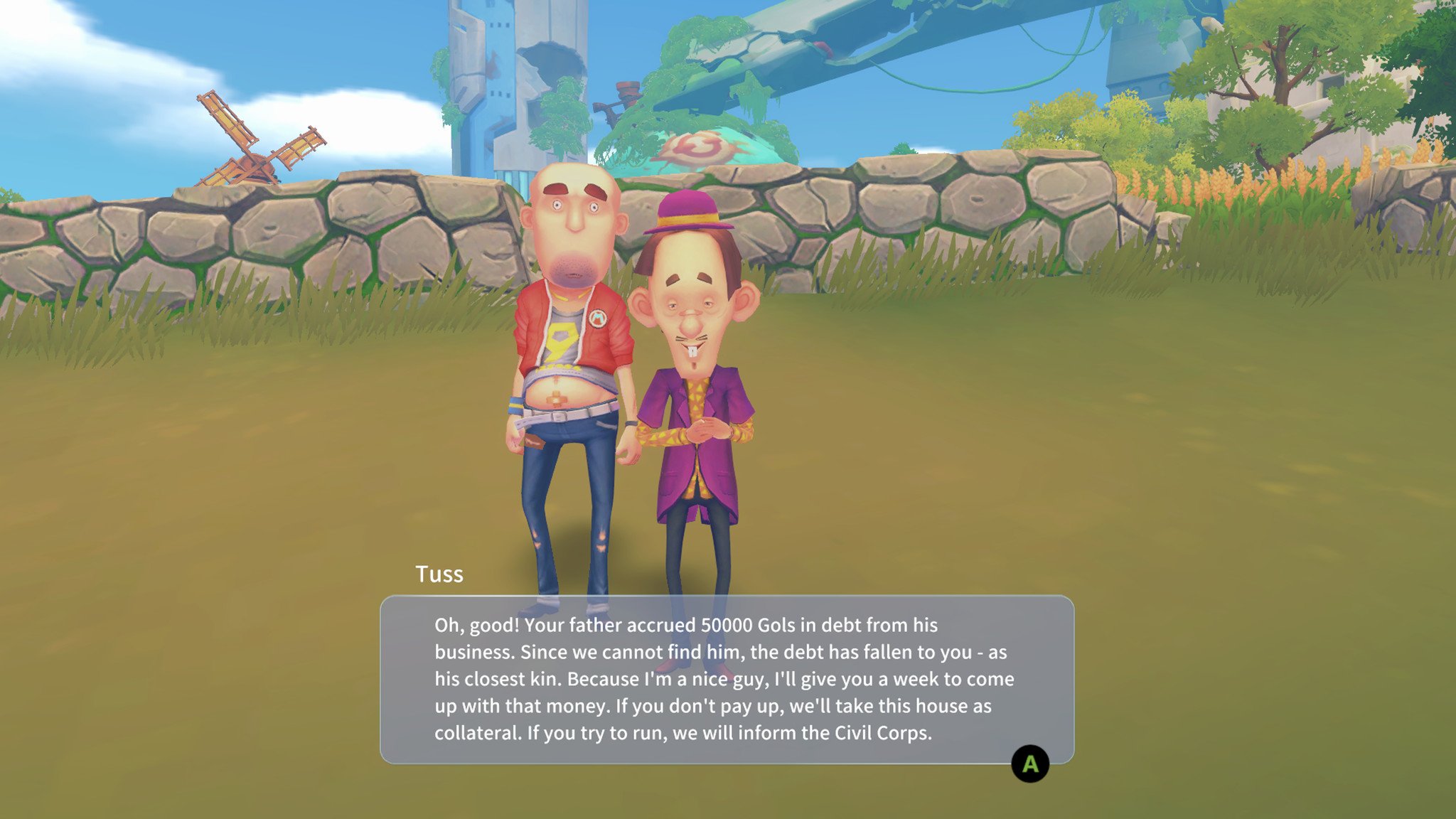
My Time at Portia won't do enough to sell you on the genre if heavyweights like Stardew Valley haven't already. While going 3D literally adds another dimension, the game's clunky menus and systems detract from the fun of building, crafting, and selling, but the general gameplay, dungeons, art style, characters, and light-hearted storylines are enough to make the early confusion worth suffering through.
My Time at Portia could use some polish to improve things like menus, positioning objects, and cursor positioning with a controller, but once you get used to its idiosyncrasies, it's a relaxing and rewarding experience.

Rebuild your father's workshop legacy
$30My Time at Portia puts a fun spin on the life-sim genre, but it could do with a few post-launch polish patches.

Jez Corden is the Executive Editor at Windows Central, focusing primarily on all things Xbox and gaming. Jez is known for breaking exclusive news and analysis as relates to the Microsoft ecosystem while being powered by tea. Follow on Twitter (X) and tune in to the XB2 Podcast, all about, you guessed it, Xbox!
